Living in China and Aisin-Gioro Pu Yi, Last Emperor of China (1906-1967)
I've probably posted before that I lived in China for a year - 1988. Just before the Tiananmen Square incident - so people were interested in and felt okay talking to foreigners. So I made lots of friends and was able to travel freely about the country.
And, as you do when you're living in the capital, I went to The Forbidden City - more than a number of times ...

... not only because of it's obvious historical interest, but because it's one of the few remaining parts of the old city that were not were not raised by the communist regime in the 1950s.
On one visit, workmen were throwing tiles down from the roof of the Hall of Central Harmony ...

... to smash on the stone square below - and be grabbed up by incredulous tourists and expats like myself ...

... who didn't understand the Chinese concept of preservation being to keep the exact form of things, rather than necessarily maintain the fabric itself.
About half way through my stay, an American friend, who also worked at Peking University (Beda), asked me if I wanted to join a group of people booking the whole of a famous but then low profile restaurant serving Chinese court dishes in an out-of-the-way hutong ...


The authenticity of the cuisine came from the fact that Miss Lili was the grand-daughter of the last cook of the Dowager Empress Cixi ...

And of course Miss Lili made an apperance at the end of the 16 course meal - to be endlessly and respectfully photographed ...

There was calligraphy on the walls done by Aisin Gioro Puren, youngest brother of the last Emperor Aisin Gioro Puyi, seen here talking about his eldest brother ...
Even while still in the PRC, I became a bit interested in the last emperor ...

 Puyi on roof of the Imperial Apartments just before being driven out of the Forbidden City in the mid-1920s
Puyi on roof of the Imperial Apartments just before being driven out of the Forbidden City in the mid-1920s With the new skill of sewing - After undergoing re-education in the Fushun War Criminals Administrative Center in the 1950s
With the new skill of sewing - After undergoing re-education in the Fushun War Criminals Administrative Center in the 1950s
Seeing the footage of Puren, I began to wonder what Puyi himself was like - and finally tracked down this footage of him speaking at the War Crimes Tribunal, Tokyo in 1946 ...
The sound of a voice somehow really brings a person to life for me.
Puyi died in 1967 - at the height of the Cultural Revolution.
And, reading 'Son of the Revolution' (Liang Heng and Judith Shapiro) about this dangerous period from the point of view of a very young impressionable student, I've always suspected that the last emperor was murdered - like so many others of his class.
BTW, YouTube never ceases to amaze me - it's now considerably enlarged by own experience of China!
Puyi died in 1967 - at the height of the Cultural Revolution.
And, reading 'Son of the Revolution' (Liang Heng and Judith Shapiro) about this dangerous period from the point of view of a very young impressionable student, I've always suspected that the last emperor was murdered - like so many others of his class.
BTW, YouTube never ceases to amaze me - it's now considerably enlarged by own experience of China!







![C18 Bronze Buddha [Southern China]](https://blogger.googleusercontent.com/img/b/R29vZ2xl/AVvXsEioLkgVKuhDoIHQgM1X6Oe2hGn75yqaj4OJXPmNpumXmQPKxB22S57YS5DVrl1P7zl7BS6EFpAtaNZPze7gzVCRiQI54bwdHhVa4fGr7NOChZwTZoo92gUen6tC5U8gWIy_pv92U0FB38M/s1600/Buddha+%255BBronze%252C+C18%252C+China%255D+1.jpg)




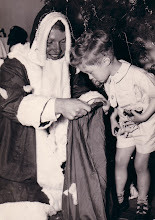








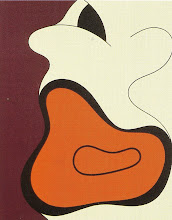+1998+Cropped.jpg)

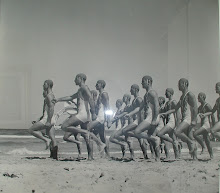
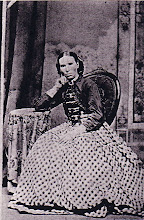



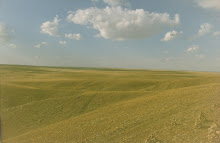



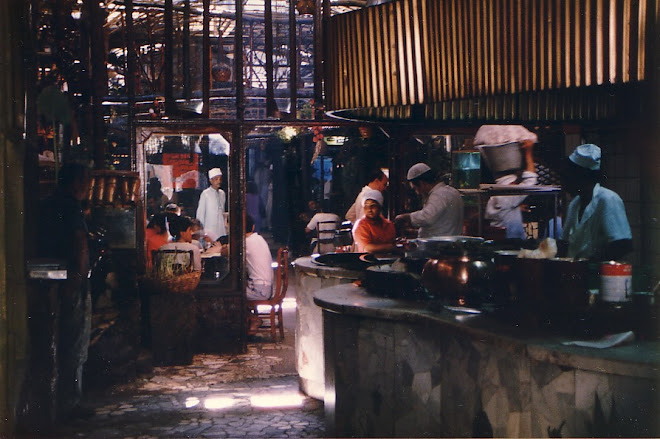

On the Chi-knees: Being the adventuresome bozo that you are, have you visited any of the Chinese shipwreck or settlement sites that Gavin Menzies talks about in his books, 1421 and 1434? These books are really something to start you thinking. Of course he is really put down for what he has written, but just get into his references in the back of each book. The Chinese discovered both Australia and New Zealand.
ReplyDeleteYou do realise that since Communism arrived in China, every place in the Celestial Kingdom has had it's ownership transferred to the people. The parliament is held in "The great Hall of the People". The largest shopping centre is the "Great Mall of the People". Then there is the "Great Wall of the People". The Imperial stables are now "The Great Stall of the People". Maybe you can think of more of them.
ReplyDeletehey anon
ReplyDeleteno, haven't been to the wreck or settlement yet - but have heard about them - problem is there are just so many intriguing places to go and only one short life-time at my/our disposal!
the chinese being merchant seamen traders fanned out over so many regions in this part of the world - in the philippines, there's a lot of C10 AD and later chinese pottery used for burial purposes
i have a C14 dish given me by a filipino friend from her collection - it was excavated in Panay there
hey anon
ReplyDeletethere is some private ownership creeping back in too - we had a bunch of chinese students here at my uni to do a post-grad course with me - and they say houses and flats can be bought now
they told me they all send their kids to private schools rather than those of the state - if they can afford the fees
things ain't what they used to be in the middle kingdom!
CYA
nick